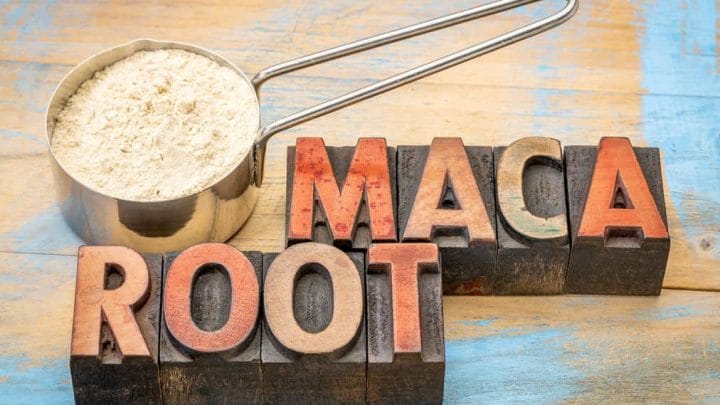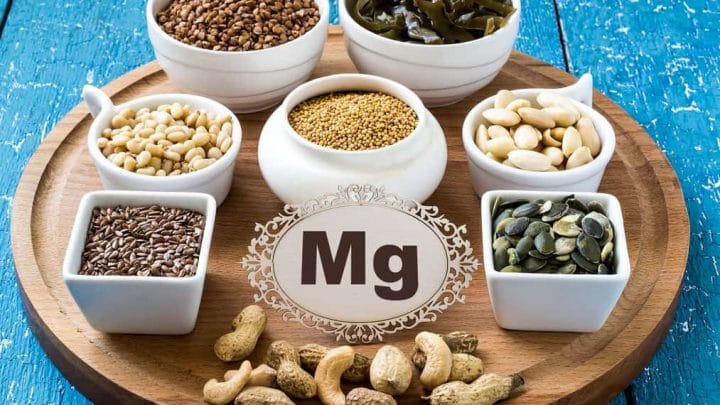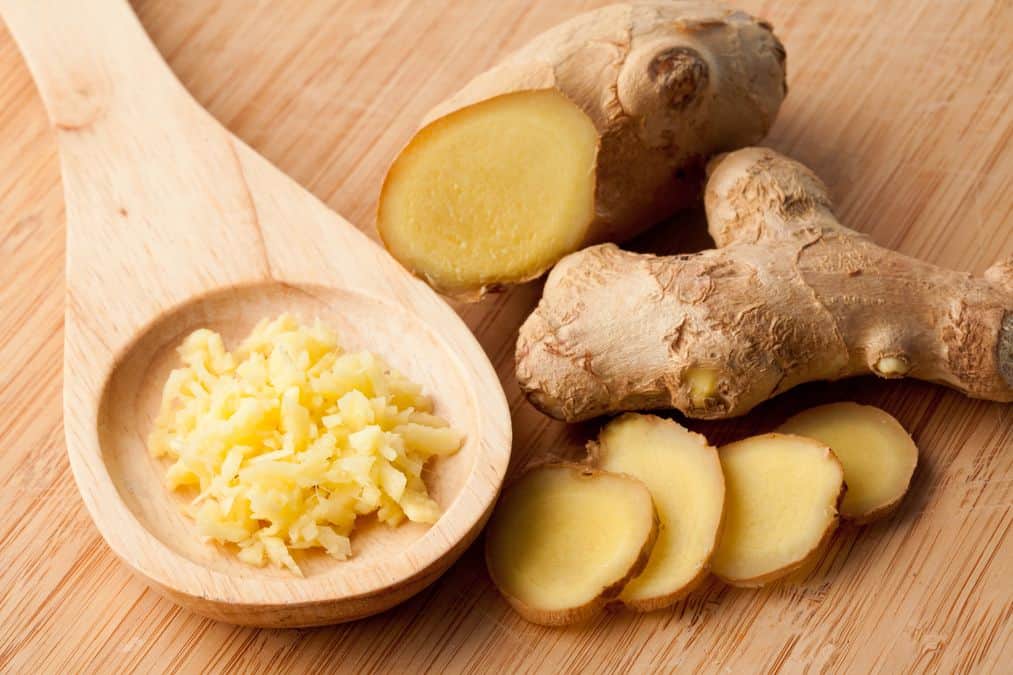
Ginger root – keeps you healthy for a long time and helps you lose weight
Pro-health effects of plants and herbs have been appreciated in the world for thousands of years. Currently, they also find their application in natural medicine, constantly popular and developed herbalism, being an attractive and beneficial alternative to typical pharmaceuticals. They work well in alleviating symptoms of various ailments, acting extremely effectively, but at the same time, in most cases, they do not cause any side effects. Ginger is a plant we are particularly interested in, as its medicinal properties not only make it good for your health, but also help you lose weight.
Contents
Ginger – origin and appearance of the plant

Ginger, from the Latin Zingiber officinale, is a plant found in nature in many, often different varieties. Well-known and commonly used not only in cooking but also as an ingredient of medicinal preparations, it grows in nature in Asia and Australia. It has been used since antiquity and in China as early as 2800 B.C. it has been mentioned in documents and classified among herbs with broad medicinal properties. The use of ginger root on our continent dates back to the Middle Ages and it was brought to Europe in the 14th century by Marco Polo, a famous traveler from Venice, who made his famous journey to China.
Ginger is a plant growing up to 1 meter high with large, oblong, lanceolate leaves in two rows and delicate purple flowers gathered in trusses. Its tuberous root, which forms characteristic branches, is used both medicinally and in cooking and can be used not only powdered but also raw.
Ginger – the nutrients it contains
Themedicinal properties of ginger, as with many other medicinal plants, are closely related to its composition, which we want to present in more detail. After all, it is thanks to it that the regular consumption of ginger, of course in recommended doses, brings with it many health benefits, while providing the weakened body with numerous nutrients. Of all that ginger root contains, worth special mention are:
Vitamin A
It is characterized primarily by strong antioxidant properties, helping to fight free radicals, reactive oxygen species that seriously threaten health and may even become the cause of cancer. Vitamin A is a chemical compound belonging to the group of carotenoids, such as retinol or beta-carotene, and we can also encounter such names of vitamin A.
However, the most important are its properties, by which it can be confidently described as one of the most important from the point of view of the human body, and the most important functions it performs are:
- conditions normal vision;
- is responsible for the growth of many tissues and cells of the body;
- accelerates the processes of their regeneration and, consequently, the healing of wounds;
- has anticancer, antiviral and antibacterial properties;
- strengthens weakened immunity;
- takes care of the health and appearance of hair, skin and nails;
- increases potency in men.
Vitamin B1
That is, thiamine, particularly important for the functioning and function of the nervous system, in addition to being responsible for:
- heart function, preventing, among other things, circulatory insufficiency;
- strong immunity, regardless of the season;
- removal of free radicals;
- proper functioning of energy metabolism processes
- better memory and concentration;
- faster reduction of body weight, allowing to effectively fight against overweight and obesity.
Vitamin B3
Commonly known as niacin, without which there can be no efficient functioning of the immune system and the brain and peripheral nervous system. Other actions of niacin, which also gives ginger root and positive for our body, are:
- taking care of proper hormonal balance, participation in the processes of synthesis of sex hormones and insulin and cortisol;
- relieving severe menstrual pain;
- regulation of blood pressure;
- use in prevention of cardiovascular diseases;
- lowering the level of toxins in the body;
- aiding in the treatment of depression;
- aiding in the treatment of acne and other skin conditions.
Vitamin B6
Also known as pyridoxine, without which many processes essential for health cannot take place in the body, such as:
- production of antibodies for proper functioning of the immune system;
- glycogen synthesis;
- synthesis of two hormones important for the functioning of the nervous system, adrenaline and serotonin;
- production of hemoglobin;
- support of heart and kidney diseases;
- regulation of blood pressure;
- metabolism of carbohydrates and fats.
Vitamin B9
Most of us associate it more as folic acid, deficiencies of which have an almost immediate negative impact on health, and are helped by ginger used in various forms. Like many other B vitamins, it also takes an active part in numerous processes in the body:
- synthesis of nucleic acids, i.e. the material forming DNA;
- regulation of homocysteine, an amino acid directly affecting health, especially when its amount in plasma exceeds the permitted standards of 7-10 mol/l, becoming the cause of atherosclerosis;
- the process of spermatogenesis, formation and maturation of sperm;
- counteracting fertility disorders;
- functioning of the nervous system, as it helps to maintain good memory and concentration.
Vitamin C
Another, after vitamin A, antioxidant “dealing” with harmful free radicals, and without it we would not be able to function properly. Ascorbic acid can be supplied in various ways, also together with ginger root, and its therapeutic properties are worth emphasizing:
- strengthening weakened blood vessel walls improving blood flow;
- higher resistance of the body to infections and diseases;
- increased absorption of iron, an element that must be supplied from external sources;
- accelerated wound healing;
- halting the natural ageing process of the skin;
- regulating the production of collagen, the most important component of connective tissue;
- counteracting arterial hypertension by lowering the level of “bad” cholesterol LDL and at the same time increasing the beneficial fraction HDL.
Micronutrients and other components
Equally important and having an impact on the health effects of ginger, are valuable microelements contained in it, elements which in the vast majority our body is not able to synthesize either. However, we can not do without them, so the consumption of ginger, raw or supplements having it in the composition, provides large doses of minerals and other valuable components:
- calcium, needed for healthy and strong bones;
- iron, which has antibacterial and antiviral properties and thus supports the immune system and is responsible for the formation of erythrocytes, i.e. red blood cells
- potassium, which regulates water-electrolyte balance, brain and nervous system functioning, counteracts heart rhythm disorders, lowers high blood pressure, minimizes the risk of osteoporosis
- phosphorus, another element responsible for strong bones and muscles, efficient nervous system, respiratory system, no gastrointestinal problems, diarrhea, nausea and vomiting
- zinc, responsible for the functioning of many internal organs, including the pancreas, improving the immune system, preventing macular degeneration, accelerating wound healing, relieving the symptoms of diseases such as osteoporosis and ulcers, increasing fertility
- dietary fiber, which improves intestinal peristalsis, thus regulating emptying, lowering cholesterol and glucose levels in blood, soothing inflammatory conditions, allowing to control excessive appetite, thus influencing the slimming properties of ginger.
Ginger root – health properties for which it is worth using
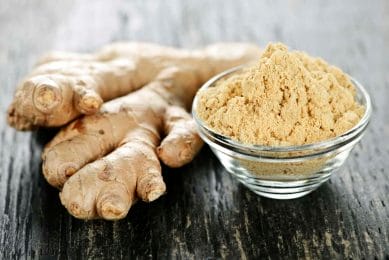
Looking at this extremely rich composition that ginger can boast of, the medicinal properties should also not raise our doubts, because they are equally wide. High in vitamins and minerals, it is effective in helping to alleviate the troublesome symptoms of many ailments, and most commonly we use ginger root for:
Colds and other seasonal infections
This is perhaps the most well-known use of ginger, influenced by its anti-inflammatory, antiviral and antibacterial properties. It can be said that it works well for seasonal colds, especially those that involve the secretion of large amounts of phlegm.
Ginger, added in a dried form to hot tea with honey or lemon, facilitates expectoration, removes phlegm, soothes coughs and sore throats, acts antipyreticly, and thanks to antiseptic properties disinfects infected respiratory tract, at the same time helps to warm up the chilled organism.
Pain of various intensity
Few people realize that ginger can be used as a substitute for typical painkillers. Studies have shown that it can even relieve severe menstrual pain, and this is due to its anti-inflammatory properties. It can also be used for muscle and joint pain, e.g. in the form of hot compresses, and to fight migraines.
Its advantage, in comparison to popular analgesic pills, is the safety of its use, as it does not cause such side effects as many pharmaceuticals used.
Heart and circulatory system diseases
Ginger root in any form, raw, dried or as a dietary supplement, also has a beneficial effect on the heart and the entire circulatory system. Its action in this regard comes down primarily to minimizing the risk of life-threatening blood clots and congestion by reducing platelet aggregation, or viscosity.
Ginger used even prophylactically regulates and supports heart function, lowers excessively high blood pressure and the level of cholesterol and triglycerides in blood, prevents atherosclerosis and other diseases of the circulatory system.
Ailments from the gastrointestinal tract
We deal with these ailments very often and usually we immediately reach for some pills instead of alleviating their symptoms with natural methods. Here again, consumption of ginger root can help, effectively alleviating indigestion, removing flatulence, regulating gastric juice and bile secretion.
Reducing body weight
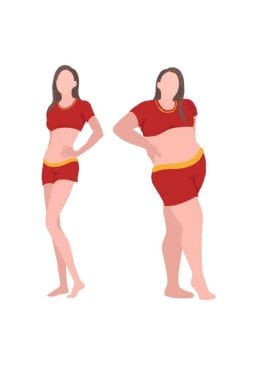
The slimming properties of ginger root have been known for many years, but before we get too enthusiastic, we should know that ginger alone will definitely not help to get rid of all excess weight or obesity. It can only aid it as an important part of a well-chosen diet, and the other pillar of successful weight loss is physical activity, outdoor exercise.
The use of ginger can help in weight reduction, which is due to its composition described above, the content of vitamins, minerals and dietary fiber. Equally important are other substances, zingiberol and three phenolic compounds, gingerol, zinferon and shogaol. They affect the process of thermogenesis, which results in faster burning of unnecessary fat tissue, in addition to accelerating metabolism. Another slimming effect of ginger is stimulation of secretion of digestive juices and more leptin. This is the hormone responsible for the feeling of satiety, so it allows you to fully control your appetite.
SEE RANKING OF SLIMMING PILLS
Ginger – usage, side effects and contraindications

There are manyways of using ginger, depending on our personal preferences and it can be used raw or dried, also as an addition to meals and drinks. If you don’t store it in the fridge, fresh ginger will keep for a week, but by refrigerating it, you can extend its shelf life up to a month. Marinated or candied ginger root is very tasty, and ginger oil is also available for external use.
When deciding to introduce ginger to your diet, you should know that its strong effects can sometimes cause side effects. Fortunately, they are not too burdensome, but in case of overdose we have to expect:
- irritation of the digestive system, especially the esophagus and stomach;
- diarrhea, vomiting, bloating and excessive gas;
- too great a drop in blood sugar levels, which people with diabetes should watch out for;
- a significant drop in blood pressure, which may endanger those taking high blood pressure medication;
- dehydration of the body due to the diuretic properties of ginger, which can lead to kidney damage.
Ginger root, unlike many other medicinal plants, can be consumed in small amounts by pregnant and breastfeeding women, although it is worth consulting a doctor beforehand. It can also interact unfavorably with some medications, mentioned for diabetes, or those that reduce blood clotting, potentiating their effects.
Sources:
- https://www.healthline.com/nutrition/11-proven-benefits-of-ginger
- https://www.healthline.com/health/ginger-for-weight-loss
- https://www.healthline.com/health/symptoms-of-vitamin-b-deficiency
- https://www.healthline.com/nutrition/vitamin-c-benefits
- https://www.healthline.com/health/mineral-deficiency


